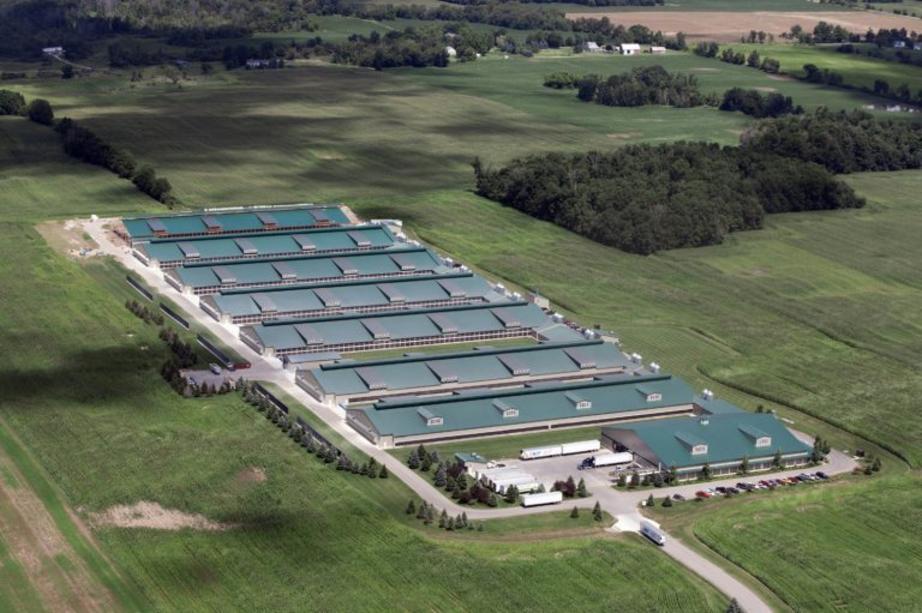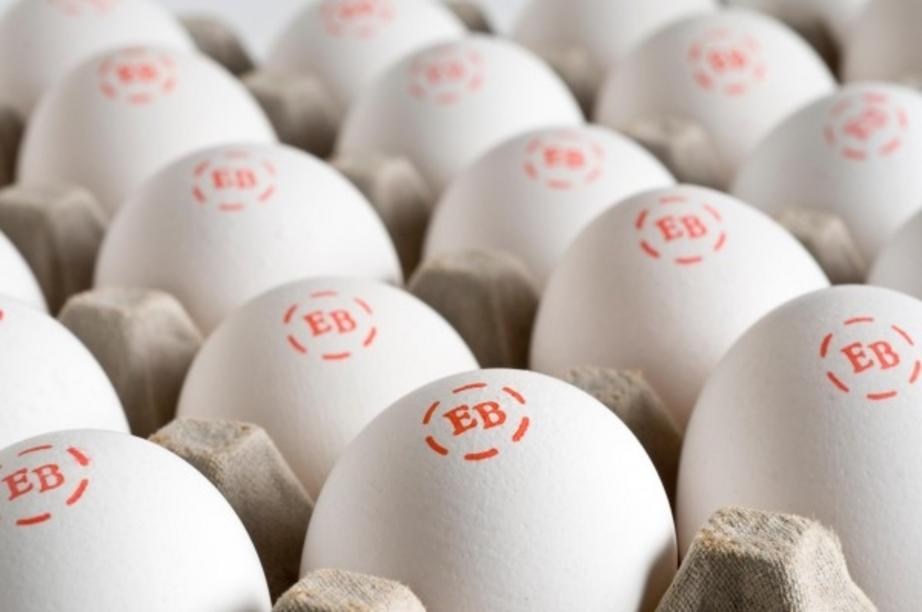Major investigation exposes the truth about one of America's largest organic egg brands
 This massive Saranac, MI facility that produces organic eggs for Eggland’s Best. But are they really organic?
This massive Saranac, MI facility that produces organic eggs for Eggland’s Best. But are they really organic?
Everyone buys organic for their own unique reasons, whether that may be health, animal welfare, environmental, or other, but it’s important to know that each individual brand and type of organic purchase has a different impact.
In the case of eggs, it’s generally safe to say that the smaller the operation, the better: “pastured” eggs from small family farms are usually your best bet for all of the above categories, although organic is generally far better than anything “conventional” you can buy.
Recently, the operations of the largest organic egg producer in the United States have come under scrutiny, and it has many people wondering why the consumer should be forced to pay more for a product that straddles the line of what it means to be “organic.”
Is One of America’s Top Organic Egg Producers Actually Organic?
The report, published in The Washington Post, focused on the Saranac, Michigan Eggland’s Best production facility, where an estimated 1 in 10 organic eggs sold in the United States come from.
While most people picture small-scale idealistic farms when they think organic, this facility is anything but according to the investigation: it houses more than 1.6 million hens and they are held in close proximity to each other with no ability to set foot outside, according to unnamed sources.
The sources were people familiar with the operation, and the building plan, as cited in the Post report.
The birds are said to be held at over three per square foot of floor space, according to the sources, who spoke on condition of anonymity because they had not been authorized to speak about the company.
The Eggland’s best “organic” eggs contain this symbol and are sold at many major grocery stores.
“This is not at all what consumers expect of an organic farm,” said Katherine Paul of the Organic Consumers Association. “It’s damaging to the image of the entire industry. People will wonder, ‘Why the hell am I paying more for this?’ ” Katherine Paul of the OCA
The USDA requirements for organic livestock are outdoor access, direct sunlight, and fresh air, while prohibiting “continuous total confinement of any animal indoors.” They are supposed to be allowed to engage in their “natural behavior,” and if the reports are true than that is simply not the case at this farm, as chickens naturally enjoy roaming outside for food in pastures.
According to Greg Herbruck, the president of Herbruck’s Poultry Ranch in Saranac which is part of the operation, the entire process is organic.
He said that the Post report was misleading because there are metal shelves that have been constructed to add more space to the area where the birds are kept, but he did not dispute the number of hens per square feet and the size of the barns.
He also declined a Post reporter’s request for a visit saying that it could “possibly infect the flock with a disease such as avian flu” according to the article.
What This Means for Organic Egg Buyers
You can learn more details of the investigation by clicking here to access the full Washington Post article.
While Herbruck insists that the operation maintains the organic standards, it’s clear that it does not meet the expectations of what consumers expect, especially in regards to the lack of outdoor access for the chickens, which is what most people polled imagine organic to include.
While there are benefits to buying even large-scale “organic” eggs like Eggland’s best, namely the lack of GMOs in their organic feed (assuming a massive operation like this does actually follow the correct protocol), the message here seems clear: buy at your own risk.
The more we support large, industrial factory-style operations like these, the more likely it is that animals will suffer and standards will continue to be watered down. More smaller family farms that do things the right way will also struggle to stay afloat.
If you’d like to know which egg producing operations are the best in terms of categories like animal welfare, family or corporate farm status, and more, you can also check out the Cornucopia Institute’s ‘Organic Egg Scorecard’ report by clicking on this link.

